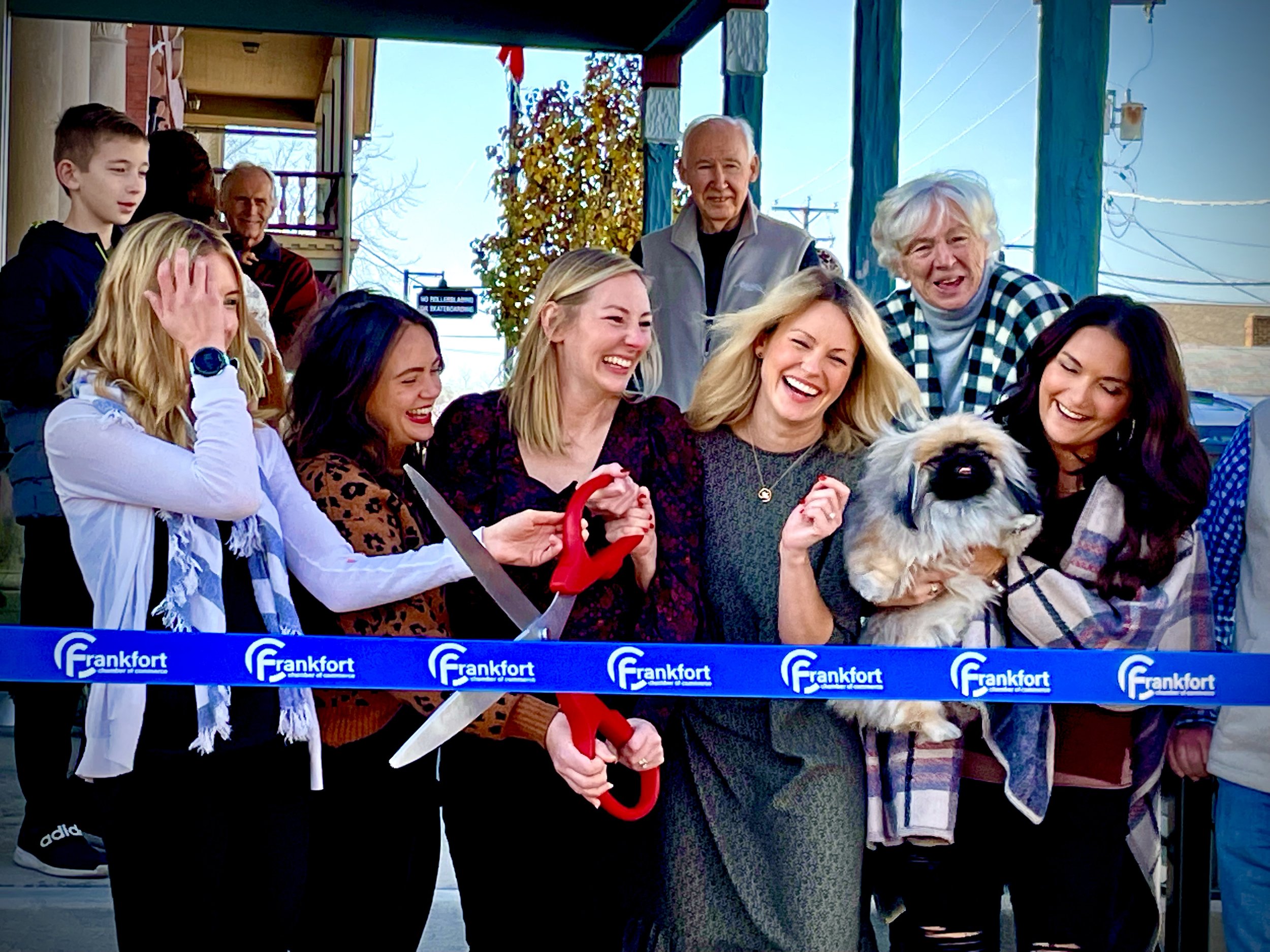
OUR BLOG
A place for news and information Grow Through What You Go Through by Chrissy Hack, MSW, LSW, PEL
When you are experiencing trauma, it’s it normal to wonder how you will recover and feel like yourself again. You may feel like the experience(s) has forever changed you. The truth is, it probably has. However, the change you experience can be positive and long lasting. Through trauma you can experience Post- Traumatic Growth (PTG). PTG impact most likely won’t be immediate, but over time, you can give your pain purpose and learn to see beautiful again.
“I failed another diet, now what?” A Blog on Intuitive Eating by Emily Presbrey MS, RD, LDN
Learning to honor and respect your body’s needs in a society infused with toxic diet culture messages can be confusing and at times down right terrifying. We are taught to hold the belief that if only we reached “X “number of pounds we would happier and live a more fulfilling live. Diet culture teaches us to use external factors to guide the eating process (counting calories, timed eating, macros, etc.). Fortunately, with intention and support, we can reignite our intuitive selves. Intuitive Eating is a process in which individuals learn to tune into their internal signals. If you’ve spent years following diets or self-imposed food rules, it can be a challenge to tune inward and trust your body. This process is NOT “perfect”. This process is NOT linear. This process IS powerful and life changing. You CAN let go of the diet culture noise and (re)learn to respect and honor your body and ultimately, “Treasure the Pleasure” of a healthy relationship with food and your body. What diet culture belief can you begin to let go of to embark on your Intuitive Eating journey?
Communication 101 for Couples by Samantha Maciaga, MA, LCPC
If you notice struggles in communication with your partner, you are not alone, and this blog is for you. Communication difficulties are one of the most common reasons why couples seek out therapy. There is no shame in struggling with this. Real help and solutions are available that can make your relationship stronger, healthier, and happier.
Love Knows No Bounds (Yet Has Healthy Boundaries) by Lauren Oster, MA, LCPC
Boundaries are, in fact, loving and we can love deeper with healthy boundaries! When we set clearly defined expectations of ourselves and others, it can result in feelings of safety, security, and respect. It can be truly empowering to set boundaries so, let's commit to setting them together.
The Surprisingly Diverse Eating Disorder Community by Kathryn Hammel
One of the amazing things about working with clients is being able to see them come back to themselves. As the layers of the eating disorder are discarded the individual starts to move back into their own. A brightness can return with all of the amazing connections the individual makes now that the eating disorder is being shed. It’s especially at this point that the individual can offer such a great perspective on recovery and their own eating disorder. Below is a piece written by someone who did just that: Moved into recovery and was able to speak so well on the topic. This blog does such a great job reminding us that eating disorders come in many shapes and sizes and that all individuals deserve to get better. Although this writer is not an eating disorder treatment professional she writes beautifully on the topic!
Beating the Winter Blues by Briea Frestel, LCSW, CADC
Some people look forward to the holiday season with excitement, but then find themselves feeling melancholy once they are over. The dark mornings and darker evenings can lead to hard feelings often referred to as “the winter blues”. Briea Frestel, LCSW, CADC gives us all the deets on how to make the gloomy days feel a little brighter.
Staff Favorites: Books for Your Own Wellness Initiative!
The team at Lotus Therapy Group have teamed up and shared some of our favorite books to aid in your own crusade for mental health! From guided workbooks to daily journals to poetry and words of wisdom we are certain there is something here for you (or a loved one!).
How to Overcome Social Anxiety by Kendra DeFrank, MA, LCPC
Social Anxiety Disorder is the third most common mental health diagnosis. Find out how we use exposure therapy and Cognitive Behavioral Therapy to help clients overcome this often debilitating condition.
The Power of Gratitude: Finding Gratefulness During the Tough Times by Sarah Hart, MA, LCPC
“What are you grateful for?” One of the most commonly asked questions this time of year can be one of the most difficult questions for those struggling with their mental health. How do we take our power back and experience both our emotions AND gratitude at the same time?
Why Body Image is Not About Our Bodies by Lisa Carroll, MS, RD, LDN
Body image very rarely is about our actual body. Oftentimes body image stems from a lack of self-worth and value as well as a perceived loss of control. Diet culture revs up this unhealthy and irrational view of our bodies by creating the fantasy that if our bodies are “fixed” our lives might be fixed as well. Although body image can be deeply rooted and lead to poor self-esteem and even the development of an eating disorder there is hope. Body image is a learned behavior and can be reversed!
Back to School Anxiety: Strategies to Help Your Child by Chrissy Hack, MSW, LSW, PEL
As your child(ren) head back to school, you may see them starting to experience an increase in anxiety. For students that face school anxiety the struggle is real. For parents of students that face school anxiety, the struggle is also real. Here are some quick tips to help your child manage school anxiety/school refusal.
Food is… by Emily Presbrey, MS, RD, LDN
Food is energy, food is culture, food is comfort. Food has always, and will always, be an integral aspect of life. If you’re feeling stuck in the mindset of “good foods” and “bad foods” I encourage to widen your lens. What other values can you see in food outside of nutritional value? It is undeniable that foods hold sensory values, emotional values, and environmental values. Intentionally incorporate variety in your intake and see what happens when you view food from the context of all of its values. What values feel important to you? By shifting our focus we are able to widen food acceptance and reduce guilt. Who doesn’t want that?!
Happiness is Not the Goal by Samantha Maciaga, MA, LCPC
We are often told that in order to be healthy, we need to be happy. But if we place pressure on ourselves to always feel happy, we are setting ourselves up for an unattainable goal. Let’s take a look at a healthier perspective on happiness and all the other emotions that come along with living fully.
Disabling the Influencer Mindset by Briea Frestel, LCSW, CADC
In an age where much of our time is spent online, it’s easy to feel impacted by the people you follow. Although social media has shown vast positive outcomes, we need to talk about the harmful portrayal of perfection, self-objectification, and digital manipulation. Following the never ending diet trends and using filters won’t lead you to a meaningful life, but instead a life of constantly chasing an unattainable standard. At the end of the day, we are just women seeking connection and wanting to feel enough.
Lets Talk About Body Image by Kendra DeFrank, MA, LCPC
Body image is not just something girls in their teens struggle with, but woman of every age. Susan Sontag brilliantly spoke about how our culture only allows one standard of female beauty… the girl. And of course we have some thoughts on this!
The Pandemic of “Perfection” by Sarah Hart, LCPC, C-DBT
The refusal to accept anything short of perfection; perfectionism. The desire or need for perfection appears to plague more individuals than not, and is resulting in damaging beliefs surrounding self worth leading to the detriment of mental health. The impact of unrealistic expectations can be so harmful that teens and adults alike, will do almost anything to feel “good enough.” Thankfully, with the right support, resources, and positive reinforcement, we can help shape and change individuals’ goals, views of themselves and overall mental health.
A Message to Our Younger Selves by Lisa Carroll, MS, RD, LDN
A lot of our body image in our adult years stems from our younger years. This is an age when filtering out hurtful and untrue messages was hard because we were not cognitively or emotionally mature enough to fully process these thoughts and oftentimes are not equipped with the tools to combat diet culture, especially from loved ones. The views of our bodies can shape our views of self and have a damaging ripple effect on overall self-love. Although we cannot go back in time and pluck out those thoughts we can challenge ourselves to deprogram the hurtful and unproductive messages we picked up when we were younger and to speak to ourselves and others with the gentleness that our younger selves deserve!
Food is not the Problem. by Emily Presbrey, MS, RD, LDN
Many of us live with societal pressures around food. We are told that our character is molded by the foods we choose to eat. Diet culture equates a persons level of morality or “goodness” with the foods they eat. You are “good” because you ate veggies and you are “bad” because you ate ice cream. The social idealization of thinness and pressures around food are contributors to the development of eating disorders. THIS is the problem. Food is not the problem.
How Do You Want to Live? by Samantha Maciaga, MA, LCPC
When an eating disorder takes hold, it is very likely that your core values will be pushed to the side and you will be headed in a completely different direction from where you originally intended. If you look at what the eating disorder finds valuable, it will likely be very different from what you value.
Looking for a New Year’s resolution? How about saying YES when it’s easier to say no? by Kendra DeFrank, LCPC
We cannot grow if we stick to what is comfortable. Stop letting fear keep you from amazing opportunities.




















